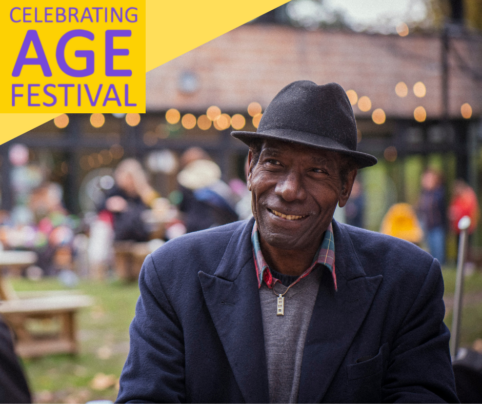24.10.18
4 minute read

We caught up with Liz, one our workers for our Community Detox Link Service to find out more about the service we’ve been running since January this year.
Working alongside our Shared Care team (who provide opioid substitute prescription in GP Practices across Bristol), the Community Detox Link Workers offer a specific service to help service users before, during and after detoxing off their script – working with them to overcome the barriers that have been in their way and achieve an opiate-free lifestyle.
We’re available to come out and meet anybody receiving Opiate Substitution Therapy (OST). Statistically people have a better chance of remaining opiate-free if they get detoxed in their first three years in OST. The earlier people meet us the earlier they have an idea of what support we can offer in their treatment journey.
We’ll typically first meet someone with their Shared Care worker to explain the type of support we can offer them; from preparing people for their detox, looking at any barriers they’ve had in the past that might get in the way of that process and how we can overcome them, and putting in a plan that makes sense to them for reducing their script and detoxing.
Sometimes we can be invited by Shared Care workers to have a chat with somebody who’s stuck a bit further up their treatment journey. We give them a call and see if they want to meet up and get a little extra support before they come into our services properly. We can help them get unstuck and then pick them up closer to their detox time.
For service users that may benefit from an incentive to help their recovery, Liz’s team are able to offer a customised Recovery Reward. Service users are then able to achieve points towards their reward by overcoming barriers.
Some people say no to Recovery Rewards, but others say ‘yeah that would help actually, I’d like that’. We’ve got somebody who was in a band who wants a guitar as their Recovery Reward. That would improve their recovery capital, as it’s good for relaxation and it’s quite a social thing.
We try and get to the barrier as quickly as can and try to find solutions to it. It’s incredibly different for every person. We do planning around triggering events and we do a life audit with people to look at areas they may be lacking in. We then link them into as many things as possible to help build their recovery capital.
For some people they’ll go to mutual aid groups. If people want to get back into employment there’s loads of places out there that can help. We’ve got also got good relationship with DHI and can refer people to become DHI peers. It’s surprising how much clients already know about and what they’ve done in the past. They say they’ve tried this and they’ve been there before and would like to go back.
Recovery Rewards works by stimulating the brain’s natural reward system. By rewarding new behaviours in place of the old problematic behaviours the brain accepts and reinforces positive behaviours, expanding people’s recovery capital and motivating them to remain abstinent.
Some people don’t always detox successfully the first time, but if they’ve had a positive experience of our support they might come back quicker and we can work with them quicker. That learning that somebody’s had around where they’ve slipped up, that’s the thing that’s going to make the difference. Momentum is going to pick up and pick up.
Liz works in Central Bristol and is one of three Community Detox Link Workers alongside her colleagues Mike, who works in North Bristol, and Rich, who works in South Bristol.
Working with Mike and Rich is great. Mike’s got loads of experience from loads of different places and Rich has been embedded in training, education, volunteering and employment support for a long time. They’re both very attuned to what external support there is available for our service users.
It’s a brilliant to be able to have a lot to offer clients. I feel like I’ve landed in the dream job. All of a sudden you’re thinking ‘I can use those skills’, be it some anger management or assertiveness.
It’s nice to be offering a lot, but the most important bit is hearing from the client what barriers get in the way of detoxing, what the problems have been in the past, and working with them to create their own solutions.
24.10.18
4 minute read

News
To start off the Celebrating Age Festival, Bristol Drugs Project will be hosting a concert at Bristol City Hall with perform...